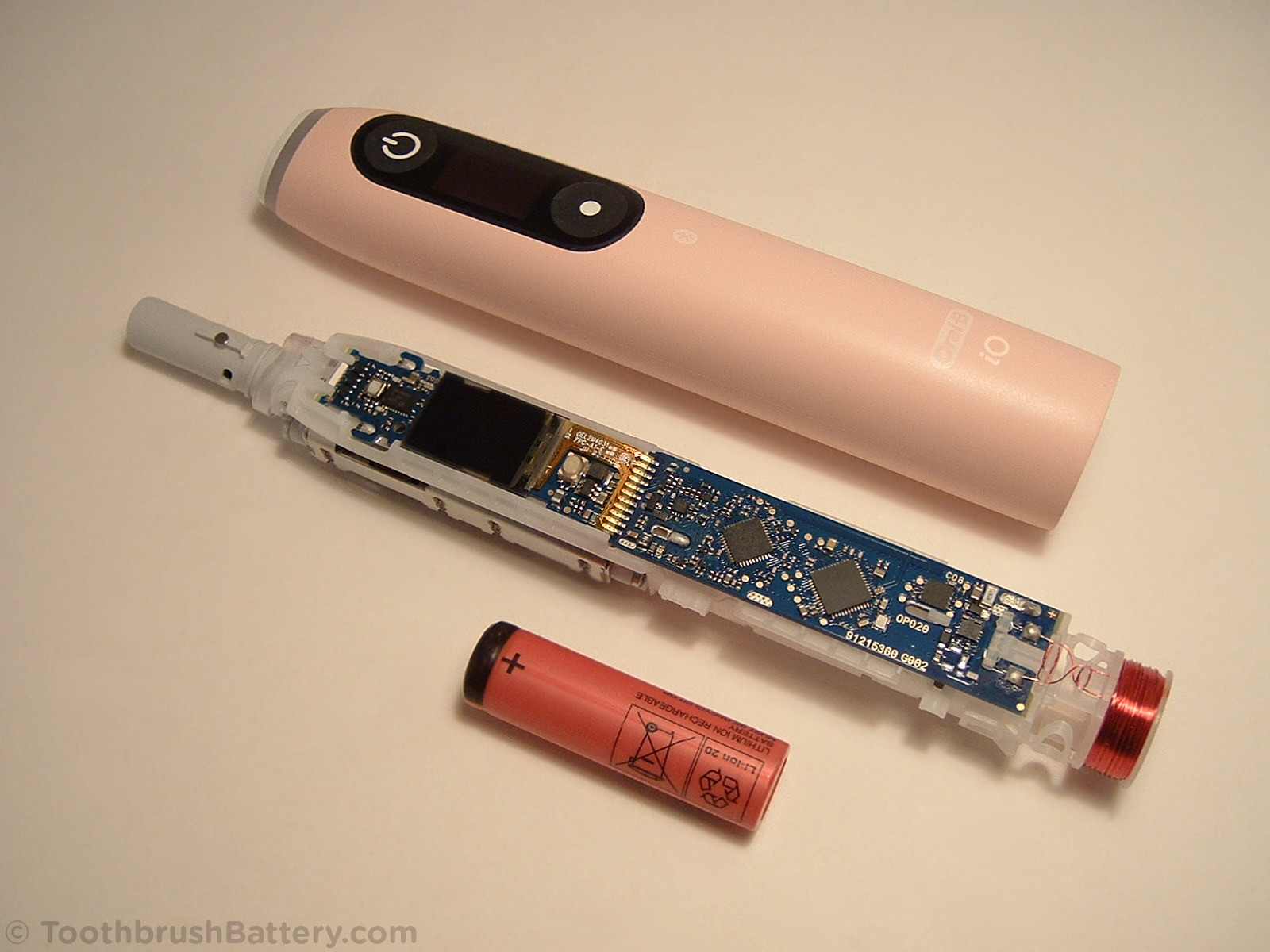Many electric toothbrushes are equipped with lithium batteries. These batteries offer longer life and quicker charging.
Electric toothbrushes revolutionized oral hygiene by providing a level of cleaning efficiency that manual brushing can rarely match. Compact and powerful, lithium batteries allow these devices to deliver consistent power for thorough plaque removal and gum care. Ensuring that your toothbrush is always ready to use, these batteries also support the inclusion of various smart features like pressure sensors and timers.
With the convenience of USB charging and travel-friendly designs, electric toothbrushes with lithium batteries have become a staple in many bathrooms, contributing to better dental health and offering a modern approach to an everyday routine. As users seek efficient and effective oral care tools, the demand for electric toothbrushes boasting the latest battery technology continues to grow.
Introduction To Electric Toothbrushes
Electric toothbrushes have transformed dental hygiene. These devices make brushing easier, more effective, and more fun. With advanced features and ergonomic designs, they cater to a broad audience, from busy adults to tech-savvy kids. Understanding the power source behind these tools is crucial. Many modern electric toothbrushes utilize lithium batteries for long-lasting performance.
Benefits Of Going Electric
Switching to an electric toothbrush brings multiple advantages:
- Thorough cleaning: Oscillating bristles reach more plaque.
- Timers: Ensure proper brushing duration.
- Pressure sensors: Protect gums from hard brushing.
- Multiple modes: Customize your brushing experience.
- Convenience: Ideal for those with limited mobility.
Evolution Of Toothbrush Technology
The toothbrush has come a long way:
| Year | Milestone |
|---|---|
| 1938 | First nylon bristle toothbrush introduced |
| 1960s | Birth of the first electric toothbrush |
| 2000s | Smart toothbrushes with Bluetooth connectivity |
| Present | Use of lithium batteries for optimal power |

Credit: toothbrushbattery.com
Battery Types In Electric Toothbrushes
Let’s dive into the world of electric toothbrush batteries. Knowing the right type of battery for your toothbrush is key. It helps you make better choices.
Conventional Battery Options
Some electric toothbrushes use standard batteries. These are the ones you buy from stores.
- AA or AAA batteries are common.
- They are easy to replace.
- No need for a charger.
Yet, these batteries don’t last long. You need to change them often.
Rechargeable Battery Varieties
Rechargeable toothbrushes are popular. They come with built-in batteries.
Most have lithium-ion batteries. These are powerful and last long.
| Type | Life | Charge Time |
|---|---|---|
| NiMH | Shorter | Longer |
| Lithium-Ion | Longer | Shorter |
- Lithium-ion is lightweight and efficient.
- They charge quickly and last longer on a single charge.
This makes them a favorite choice for many users.
The Role Of Lithium Batteries
Electric toothbrushes need powerful, reliable batteries. Lithium batteries provide this power. They are lightweight and long-lasting. These batteries keep toothbrushes running efficiently. Let’s explore why lithium batteries are the go-to choice for electric toothbrushes.
Characteristics Of Lithium Batteries
- High energy density: More power in a small package.
- Longevity: They last for many charge cycles.
- Fast charging: They power up quickly.
- Low self-discharge: They lose charge slowly when not in use.
Why Lithium Stands Out
Lithium batteries stand out for several reasons.
| Feature | Benefit |
|---|---|
| Lightweight | Makes toothbrushes easy to handle. |
| Stable | Provides consistent power output. |
| Efficient | Runs toothbrushes for weeks per charge. |
Lithium Batteries In Dental Hygiene
Electric toothbrushes are revolutionizing oral care. They often feature lithium batteries. These power sources are reliable and long-lasting. They ensure your toothbrush is always ready for use.
Impact On Brushing Efficiency
Electric toothbrushes with lithium batteries boost brushing performance. They maintain consistent power output. This means no drop in brush speed during use. Users enjoy a uniform cleaning experience every time.
- Consistent power delivery
- Even brush strokes
- Improved plaque removal
Advantages For Oral Health
Lithium-powered toothbrushes offer several oral health benefits. They promote better plaque removal compared to manual brushes. They also help in reducing gingivitis. Users can achieve a deeper clean with less effort.
| Feature | Benefit |
|---|---|
| Long Battery Life | Fewer charges needed |
| Consistent Power | Effective cleaning |
| Short Charging Time | Quick to use |
Safety And Environmental Concerns
Electric toothbrushes often use lithium batteries for power. These batteries pack a lot of energy into a small space. This makes the toothbrushes efficient. Yet, it also raises safety and environmental concerns.
Disposal And Recycling Challenges
Disposing of lithium batteries is not simple. Incorrect disposal can harm the environment. Batteries can leak harmful chemicals. They can also cause fires.
- Not biodegradable: They don’t break down naturally.
- Risk of pollution: They can pollute soil and water.
- Fire hazard: They can catch fire if damaged.
Recycling these batteries is key. Yet, not all places have the facilities to do it right.
Mitigating Environmental Impact
There are ways to lessen the harm these batteries cause.
- Use toothbrushes longer. This reduces waste.
- Recycle properly. Find a local facility that handles lithium batteries.
- Choose brands that support recycling programs.
Companies are also working on safer battery technologies. These could be less harmful to the environment.

Credit: www.trysnow.com
Comparing Battery Life And Performance
When choosing an electric toothbrush, battery life and performance are key. Different battery types can impact how long your toothbrush lasts between charges and its overall lifespan. Let’s dive into the differences between Lithium and NiMH batteries.
Lithium Vs. Nimh
| Battery Type | Pros | Cons |
|---|---|---|
| Lithium |
|
|
| NiMH |
|
|
Charging Times And Longevity
- Lithium batteries charge quickly, often in hours.
- They provide consistent power until the next charge.
- NiMH batteries may take overnight to charge.
- They lose power gradually, affecting brush performance.
Electric toothbrushes with lithium batteries offer convenience and efficiency. You can rely on them for a quick boost before heading out. NiMH batteries need foresight, charging well before the battery runs low.
Tips For Maintaining Your Electric Toothbrush
Electric toothbrushes need proper care for top performance. They often use lithium batteries. These tips will extend your toothbrush’s life.
Optimizing Battery Life
- Charge fully before first use.
- Run the battery low before recharging.
- Keep the toothbrush off the charger post full charge.
- Avoid overcharging; it shortens battery life.
- Use the recommended charger only.
Cleaning And Storage Practices
| Cleaning | Storage |
|---|---|
|
|

Credit: www.spinbrush.com
Future Trends In Toothbrush Tech
Electric toothbrushes are evolving rapidly. The future of oral care looks bright with cutting-edge technologies. Users anticipate longer battery life and eco-friendly designs. Let’s explore the exciting future trends in toothbrush tech.
Innovations In Battery Usage
Manufacturers aim for power-efficient toothbrushes. New models may feature advanced lithium batteries. These batteries offer longer life spans. They also enhance the overall brushing experience. Users enjoy more efficient charging and consistent power delivery.
Smart toothbrushes could soon adjust power usage. They may adapt based on brushing habits. This innovation ensures optimal battery use. Users benefit from a personalized brushing routine.
Sustainable Practices In Design
Green initiatives are shaping toothbrush designs. Brands prioritize recyclable materials. These materials reduce environmental impact. They also support sustainable living.
Future electric toothbrushes might feature biodegradable parts. These parts break down naturally. They pose no threat to the ecosystem. Consumers appreciate products that care for the planet.
| Feature | Benefit |
|---|---|
| Advanced lithium batteries | Longer life, consistent power |
| Smart power usage | Personalized brushing, efficient energy |
| Recyclable materials | Less waste, eco-friendly |
| Biodegradable parts | Sustainable, Earth-friendly |
Stay tuned as toothbrush tech pushes boundaries. It promises a cleaner planet and brighter smiles.
Frequently Asked Questions
What Powers Electric Toothbrushes?
Most electric toothbrushes are powered by rechargeable batteries, often lithium-ion, due to their long-lasting charge and compact size.
How Long Do Toothbrush Batteries Last?
Electric toothbrush lithium batteries typically last for weeks on a single charge, with exact duration varying by brand and usage.
Can You Replace Toothbrush Lithium Batteries?
Some electric toothbrush models have replaceable lithium batteries, while others come with sealed units that are not meant to be replaced.
Are Electric Toothbrush Batteries Safe?
Lithium batteries in electric toothbrushes are generally safe, designed with protective circuits to prevent overheating and other safety issues.
Do All Electric Toothbrushes Use Lithium Batteries?
Not all, but many modern electric toothbrushes utilize lithium batteries for their efficiency, compact size, and ability to hold a charge longer.
Conclusion
Exploring the power source of electric toothbrushes reveals a common thread: lithium batteries. These compact, efficient cells enhance brushing efficiency while offering convenience. As dental hygiene evolves, recognizing the role of lithium batteries in our daily routines becomes crucial. Embracing this technology ensures a brighter, healthier smile with every charge.
